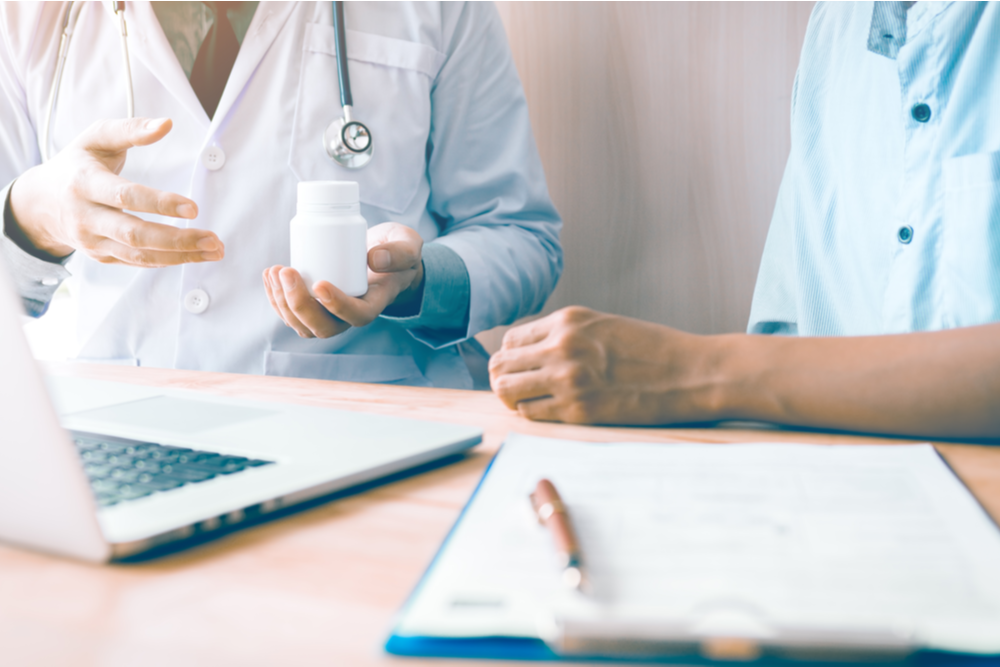Counseling therapy is an essential part of opioid addiction treatment. But are you aware of how important medications for opioid use disorder are? Many people don’t realize that the FDA has approved three medications to manage withdrawal symptoms and reduce the risk of overdose.
Read on to take a closer look at the importance of medications for opioid use disorder (MOUD). Next, we’ll dive into the vital role of addiction therapy. Finally, we’ll put them together and examine this holistic treatment approach.
The importance of medications for opioid use disorder (MOUD)
Many people get treated for chronic health conditions like heart disease and diabetes for years at a time. This long-term perspective fits for opioid addiction as well. Medication for opioid use disorder (MOUD) helps people stop using harmful opioids. The medications work with the nervous system the same way opioids do, but the person does not feel high or intoxicated.
These medications keep a steady level of opioids in a person’s body, which is safer than living through the ups and downs of opioid misuse. With this support, a person can turn their attention to other aspects of their life. They can stay connected with loved ones, care for themselves and do counseling therapy.
MOUD is safe and effective when used correctly, and the science behind it is strong. Unfortunately, it is not used as widely as it could be. Many people don’t understand the benefits, and some healthcare providers don’t have the support at their facility to offer this treatment.
Myths also surround MOUD treatments. Some believe that a person isn’t really in addiction recovery if they are using any type of substance, including the FDA-approved medications used with MOUD. This belief is not true. All people getting treatment with MOUD should be considered in recovery.
MOUD is also more than just handing out medication once in a while. This treatment offers long-term support and connection over time. Ongoing contact with a caring professional team can fill a social support gap. And it can normalize long-term health care for addiction, reducing stigma.
The vital role of addiction therapy
Addiction recovery is about more than just not using substances anymore. Addiction touches every part of your life: your relationships, work-life, finances and more. When you misuse a potent substance like opioids, your addiction pushes these life priorities to the side. Your thoughts, emotions, and behaviors are all affected. It hurts you, your loved ones, and your life circumstances.
Life with opioid addiction is messy, and that’s where counseling therapy comes in. Trained therapists guide and support you through the tangled web of addiction recovery. Here’s more about addiction therapy and why it’s essential for recovery.
Relapse risk
In therapy, you’ll learn about your unique triggers. You’ll understand how to avoid those you can and how to cope with the ones you can’t. Triggers are cues that increase your risk of relapse, so addressing them in therapy can cut this risk significantly.
Support and feedback in group therapy
Group therapy is a powerful way to address addiction issues. People often feel isolated and ashamed with untreated addiction, and groups provide a natural support network. You learn that you aren’t alone, but it’s also important to keep each other accountable. Group therapy helps you build the relationships you need to do both.
Untreated mental health conditions
Many people who misuse opioids and other substances have untreated mental health conditions. This is known as having co-occurring disorders. Depression, anxiety and trauma will continue to drive a person’s addiction if they aren’t diagnosed and treated. Therapy isaddresses co-occurring disorders at the same time to ensure a better recovery.
Combining treatments to heal the entire person
Addiction affects the entire person, so the most effective treatments need to work the same way. By taking a holistic approach, treatment honors all the life areas changed by addiction. Medication is vital for helping a person’s body recover and to stay healthy. And when a person’s body feels better, their mind can focus on therapy. Both medication and therapy work together to support different aspects of addiction harm.
The best practice approach for addiction treatment helps the whole person heal. Everyone’s needs are different, and recovery is often better when both treatments are used. Doing just one treatment would leave out the benefits of the other.
Therapy and medication for opioid use disorder: A healing combination
Using both therapy and medication for opioid use disorder can give you or a loved one the best start for recovery. You can find the services and information you need with one phone call to 1-888-622-7809.
Find more information about addiction rehab in Nashville, Tennessee, by asking about our P.A.T.H. program. And if you’re looking for rehab in Massachusetts, learn about the P.A.T.H. program at our Worcester facility. Reach out today.

